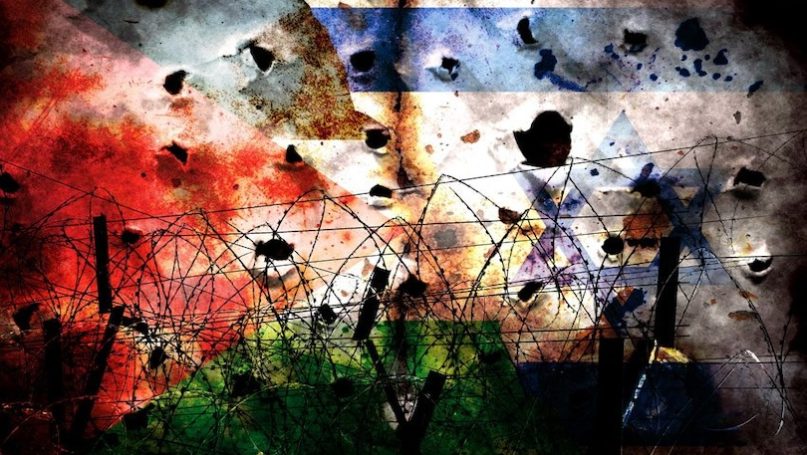
The Israel/Hamas war poses some issues for International Relations scholars which we perhaps tend to downplay. For example, the desire to act or demonstrate solidarity, to fulfil the imperative to ‘decolonise’ or ‘to call out the oppressors’, can often clash with the desire to deconstruct or oppose claims to political or moral authority. Today many people are becoming increasingly aware of our shared imbrications and entanglements, where all ‘our livelihoods are underwritten by colonial violence and unsustainability’. If coloniality is not something that can just be wished away but is at the heart of the international system, the best of intentions can often result in reducing decolonising to a metaphor or taking shortcuts – ‘decolonial washing’ via publishing appeals, petitions and statements – rather than initiating transformative change.
For example, one minute we’re reading or writing critical studies of the ways that international institutions gain moral authority through international humanitarianism, but the next minute, when something dreadful happens in the world, it seems that there is no alternative but to demand that our governments act ‘progressively’ in the world. This problem perhaps is most acute when it comes to the demand that ‘something must be done’ about international outrages, such as war crimes and genocide. In these cases, it appears that our ethical and political desires to decolonise have no avenue of expression without reinforcing the existing domestic and international hierarchies.
The danger is magnified in the cases of international policy discourses that assert their humanitarian and universal underpinnings, seeking legitimacy for interventions to protect victims of violence. As Polly Pallister-Wilkins writes: ‘…race and racism need to be taken seriously as features within the structures of humanitarian thought and practice. Alongside this, it is necessary, for scholars and practitioners alike, to acknowledge that humanitarianism, with its universalist claims, acts as a salve for sustained racial discrimination and violence, working if not to entirely invisibilize racial hierarchies within suffering, then to make the racial underpinnings of such suffering acceptable through supposedly universal practices of care.’
In such cases, the moral imperative to ‘decolonise’ can be particularly paradoxical. If ‘decolonising’ is to be more than a managerial buzzword, the global structures of power and domination, built on colonial exploitation, indigenous dispossession, and chattel slavery, would need to be dismantled. This would seem to rub up against the desire that dominant world powers and international and domestic institutions demonstrate their ‘decolonial’ credentials.
Perhaps it could be argued that we have already rehearsed this problem of international institutions garnering moral and political credibility on the back of wars and atrocities. Most recently in the international attention to the Ukraine/Russia conflict, making some (white, European) lives more grievable than others.
It seems particularly difficult to take colonial legacies and continuing international hierarchies of power out of international calls for humanitarian action in the Israel/Hamas conflict. For example, many University schools and departments are drawing up their own petitions on the conflict. Staff are not merely left to sign one of the many petitions already in existence, calling for peace and justice in Gaza, but are encouraged to organise their own workplace petitions. The reason for this bypassing of existing demands for the British government to act as a force for peace has little to do with Britain’s key colonial role in the establishment of Israel as a settler-colonial state.
The need for a separate petition arises in order for colleagues to make solidarity demands upon their university employers and to “show that our stated commitment to progressive values and decolonising education actually means something”. It becomes a problem when the desire to demonstrate ‘decolonial’ or ‘progressive’ credentials takes the form of petitioning the British government and University and other employers to involve themselves in international conflicts as a way of demonstrating that they somehow share or can lead political and ethical work in this area.
This is particularly the case when many leading states and educational institutions would find it much more difficult to discuss their own financial dependency on endowments from the profits of coloniality and chattel slavery. As leading authorities on ‘decolonial washing’ write, ‘we contend that engaging in complicated conversations is a necessary condition for decolonising university curricula’. It is doubtful that conversations about these institutions own colonial complicities can be short-cut through petitioning them to become decolonial actors elsewhere in the world.
As Eve Tuck and K. Wayne Yang argued, not taking decolonising seriously ends up in settler ‘moves to innocence’ and ‘settler futures’ where leading colonial institutions and beneficiaries are reimagined in non-oppressive terms. As the editors of Decolonising the University state: ‘the foundations of universities remain unshakably colonial’. Therefore, focusing on the British government and leading employers and institutional benefactors in ways that problematise assumptions of their moral authority would presumably be more useful than calling upon these institutions to demonstrate their commitment to decolonising.
As Vanessa de Oliveira Andreotti powerfully argues – ‘Potholes in the Road toward Decolonization (For People in Low-Intensity Struggle)’ – coloniality is so baked into Western state powers and institutions that attempts to take ‘short cuts’ through making ‘decolonial’ claims and statements can easily feed into existing hierarchies, reproducing ‘colonial entitlements’ rather than challenging them.
Further Reading on E-International Relations
- Opinion – Assessing the Legality of Ousting Hamas
- Opinion – Why Is Hamas Not Conducting More Suicide Attacks?
- Opinion – The International Community Should End the Israel-Hamas War
- Last Exit? A Three-State Solution to the Israel-Palestinian Dispute
- Opinion – Double Standards and Media Bias in Israel’s War on Gaza
- Reflecting on International Terrorism after the Hamas Attacks on Israel